If you have an interest in cannabis, it's likely you've heard the words "delta 8" and "delta 9" before. They may sound a little bit like science fiction terms, but they're actually two similar compounds found in the marijuana plant. But just because they're similar doesn't mean they're the same thing.
Curious about the difference? Want to know more about which one is the better choice for you? You're not alone! We receive this question often from our customers, so we've put together a little guide to help you better understand what each term means and why they're so different from each other.
What is Delta 8 THC?
Meet delta-8-tetrahydrocannabinol. Its friends call it delta 8 THC. Delta 8 is a compound that occurs in very small quantities in the cannabis plant.
You likely recognized the letters "THC" when you read its name. THC is the compound in cannabis that gives users that psychoactive "high." When you hear someone talking about THC, they're most likely talking about delta 9 THC (more on that later). Delta 8 is a very similar compound that causes a similar feeling of euphoric high, but the method by which it is derived is very, very different.
Delta 8 has risen dramatically in popularity in the United States over the past few years due to a loophole in the 2018 Farm Bill. This bill led to the legalization of products made from hemp plants that meet the legal standard for hemp. "Hemp" is defined as plants that contain 0.3% or less THC by dry weight. Importantly, though, this refers to delta 9 THC. Delta 8 THC has no such restrictions.
There's a problem, though. While delta 9 THC is abundant in the cannabis plant, delta 8 is not. This means the process for extracting delta 8 from hemp is very different from the process of extracting delta 9. We'll get into the specifics of this difference in another section, but for now just know that processing is the main difference between the two compounds.
What Is Delta 9 THC?
Delta 9 THC is the compound that many people know and love for its euphoric high. It interacts with the body's endocannabinoid system in a way that many people find pleasant. Delta 9 occurs naturally in the cannabis flower and is what most people are referring to when they reference THC.
Because delta 9 THC is extracted directly from hemp plants, it is subject to much higher levels of government regulation than delta 8 THC.
Main Differences Between Delta 8 and Delta 9 THC
Chemically speaking, delta 8 THC and delta 9 THC are nearly identical. Both interact with your endocannabinoid system, both create a euphoric high, and both have a very similar chemical structure including a double bond in their carbon atoms. The biggest differences between the two come down to their legality and the methods by which they are derived.
First, let's talk about regulation. In 2018 the United States passed a law that regulated the sale of hemp-based products. This bill states that only products that come from plants that meet the legal definition of hemp (0.3% THC by dry weight) are federally legal. While this opened access to more cannabis products, it also created a legal gray area. Delta 9 THC, which occurs naturally in cannabis, is highly regulated. But D8 THC, which is most often derived from hemp-derived CBD, is unregulated.
But there's a bit of a problem. Delta 8 THC does not occur in high concentrations in hemp plants. This brings us to the biggest difference between delta 8 and delta 9: the way they are created. When you see a delta 9 product, it is most likely directly extracted from the plant. D8, on the other hand, is made through a chemical conversion process where other cannabinoids like CBD are transformed into delta 8 THC. In other words, delta 8 THC is a semi-synthetic substance where delta 9 is a naturally derived one.
In theory, delta 8 and 9 are very similar products. In practice, however, the way each compound is extracted results in huge differences between the two, particularly when it comes to their safety and efficacy.
Safety, Risks, and Lab Testing
In one corner you have synthetically produced delta 8 THC. In the other you have naturally derived delta 9 THC. How do they stack up when it comes to safety? Let's talk about it.
First, let's think about delta 9 THC. D9 comes from the cannabis plant, a plant that has been used and consumed for thousands of years. It's a naturally occurring substance that can be extracted directly in a relatively simple way. And because it has been consumed for hundreds of years, there's a large body of cannabis research showing that it is safe for human consumption.
Because delta 9 THC is a regulated product, there is a large amount of oversight in how it is made. This helps make sure the end result is high quality, pure, and safe.
Delta 8 THC, on the other hand, comes from a very new process. It is largely unregulated and carries with it a number of risks:
Less Regulation
Delta 8 THC products are products that have not been evaluated by the FDA. Therefore, these products don't have the same requirements for testing and safety that delta 9 products do. While there are absolutely manufacturers of delta 8 products who are reputable and provide a quality product, the lack of regulation means that the consumer has to be the one to determine whether a product is safe or not. Because there's no high-level regulation on this substance, there's simply no way to know whether you're dealing with an honest seller or someone who is just looking to make a quick buck at your expense.
Made with Harsh Chemicals
The process to convert CBD and other cannabinoids into delta 8 THC involves the use of potentially harmful chemicals. There are a variety of methods used for this process, and as a consumer there's no way to know for certain exactly how the delta 8 you're consuming was created. Manufacturers are experimenting with different methods of creating delta 8, so without realizing it you could find yourself as a guinea pig for an untested method.
Chance of Byproducts
An unfortunate side effect of synthesizing THC is that unwanted byproducts can still be present in the finished product. Strong acids are often used in this process, as are equally strong bases. As a result, traces of heavy metals can occur in the end product. There's also no way to tell under what conditions the original hemp was grown in, or how it was processed, opening the door for mold and pesticides to find their way into what you are consuming.
No Labeling Oversight
If you're going to be putting something in your body, you need to be able to trust the information you're getting about it. Many makers of delta 8 products are honest and straightforward in their labeling. Unfortunately, not all producers hold themselves to this standard. Again, this places the consumer in a situation where they have to make a decision about what they're buying without knowing if their information is accurate.
Limited Lab Testing
Unlike delta 9 THC, which is subject to strict testing regulations, delta 8 THC is not required to undergo stringent testing before being sold. So not only is there a much higher chance of contamination due to the way delta 8 is made, there's also less evidence to back up a given product's safety. A lack of testing also makes it impossible to know exactly what cannabinoids are in a delta 8 product. Delta 9 THC can occur in delta 8 products, making it difficult to know for sure how much to consume to achieve the psychoactive effects you're looking for.
A Lack of Long-Term Data
The explosion of delta 8 products in the hemp industry has happened very recently. Because of that, there's not much research at all into the long term effects or how it impacts the human body. Compare this to delta 9 THC, which has a stronger body of cannabis research that can help you better understand how it will impact you.
Delta 8 THC is a Less Potent Product
D8 is very similar to D9 THC chemically, but there are some subtle differences that impact how it interacts with your cannabinoid receptors. These differences lead to a product that is less potent. This isn't necessarily a bad thing: many people are looking for a less potent product. However, the lack of sufficient research on delta 8's effects make it incredibly difficult to choose an appropriate serving size.
In short, the quick rise of delta 8 products in the marketplace makes it more difficult to know what you're getting. Some delta 8 THC products are safe and reliable. Others are not. The lack of oversight makes it nearly impossible to know for sure if you're dealing with a quality product or a dangerous one. Delta 9 THC, on the other hand, is highly regulated and comes with the level of testing you need to know for sure that what you're consuming is potent, safe, and effective.
Do you sense a little bit of a bias here? That's because we are a little biased! Our commitment is to quality and transparency in all of our cannabis products. Delta 9 THC allows us to stick to that commitment.
How to Choose Between Delta 8 and Delta 9 THC
Choosing the right THC product can be difficult. There are many different factors to take into consideration when choosing between delta 8 and delta 9 THC. Here are a few you may want to consider as you make your choice:
Availability
Laws regarding THC vary from state to state. Your location may have a large impact on what is available to you. THC is considered a controlled substance at the federal level, though the federal government leaves enforcement largely up to individual states, contributing to legal inconsistencies across many states.
Desired Effect
Due to their chemical makeup, delta 8 and delta 9 THC can differ in their potency. In general, delta 8 delivers a less potent "high," while delta 9 tends to be more "potent." Depending on the type of experience you want, one may be better suited to you than the other. Some individuals seek THC as a form of symptom relief for issues like nausea, though more evidence is needed to confirm its value as a treatment.
Test Results
Delta 9 THC tends to be much more strictly regulated than delta 8. Therefore, it is much easier to find accurate test results for delta 9 products. If it's important for you to have this information, opt for delta 9. Users should also look for test results on items such as tinctures, edibles, or vape cartridges to verify potency and purity.
Regulation
Delta 9 products are often subject to stricter regulation at the state level, especially when derived from hemp. While not FDA-approved, products sold under licensed cannabis programs or tested by third-party labs tend to follow more rigorous safety protocols. This makes it easier to be confident that the product you receive is high quality and that its contents match what is on its label. Where there are many reputable sellers of delta 8 products, the lack of regulation makes it difficult to tell a quality product from an inferior one. If you experience any negative reactions such as anxiety or dizziness, they may be related to adverse effects, particularly when purchasing from sources not overseen by a cannabis regulatory agency. Additionally, cannabis-infused food products should list full ingredient panels and lab results to ensure transparency.
The choice between delta 8 THC and delta 9 THC comes down to what you're comfortable with. When you choose delta 9 THC, you're choosing a product that is naturally derived and produced under strict quality standards. You'll have information at your fingertips about how it was made, and you'll have the confidence that comes from knowing it was tested and passed strict quality standards. There's a long history of delta 9 THC use, so its impacts on the body are better understood.
Delta 8 THC, on the other hand, comes with a number of unknowns. There is a lack of research into how it impacts the body, which means you'll be less able to determine how you might respond when you try it. The chemical process used to extract delta 8 THC is harsh and can leave behind dangerous byproducts. Because there is a lack of regulation, you won't have the tools you need to determine if a given product is truly what the label says it is.
Again, we're happy to admit our bias. In our eyes, delta 9 THC is the choice with fewer unknowns.That's a big part of why we use it in our products, and it's why we recommend it to our customers. Many of our users tell us that transparency and testing standards are their top priority when shopping for THC products.
What Do Experts and Users Say?
We can talk about our preferences all day, but what do other people say?
First, let's take a look at the Federal Food and Drug Administration. The FDA oversees the safety and effectiveness of many products. Their stance towards Delta 8 THC is clear: there are risks involved with its use.
Delta 8 THC has not been evaluated for safety
The FDA has not approved delta 8 THC for safe use in any context. This means there can be lots of variation in the formulas used from product to product, there may be additional compounds present that you weren't expecting, and you may not be able to trust what's on the product's label.
There have been adverse events reported
Over 100 adverse delta 8 events were reported to the FDA over a two-year period. You can read more about their specifics at the link above.
Delta 8's intoxicating effects are unpredictable
Products containing d8 THC can expose you to higher levels of THC than what you'd find in raw cannabis. This means you can't use information gathered from standard cannabis use to draw conclusions about its safety.
Harmful chemicals can be used to create Delta 8 THC
The FDA notes that the chemical process used to synthesize delta 8 can lead to dangerous byproducts in the end product. Additionally, contamination may carry through from the raw materials used to make the original hemp oil. Finally, there is no way to confirm whether the delta 8 you're consuming was made in a sanitary setting.
The FDA's stance: delta 8 is not the right choice if safety is your priority.
It's also interesting to compare the legality of d8 vs d9 by state. Recently updated (2025), Delta 9 THC is illegal in three states and unregulated in 1. Delta 8 THC is banned in 14, and that number may be growing. States and regulators are scrambling to better understand what delta 8 is, assess whether it's safe, and to create laws and regulations accordingly.
The legalities around delta 9, however, are much more stable. It's a much better understood compound, and there are fewer questions about whether it's safe for consumers to use to get the "buzz" they're looking for.
Speaking of consumers… what do they think about where they get their THC? Well, we can only speak for our customers, but Joy Organics’ sales show that there is a wide range of people who love what they get with Delta 9 THC. Our customers tell us they like that they can buy with confidence thanks to our stringent third-party lab testing. They like the predictability that comes from a type of THC that is well-understood. They care about quality and transparency, so for them delta 9 THC is the clear winner.
Choosing between D8 and D9 isn't always easy. There's a lot to take into consideration, and in the end the choice is up to you. However, if your priorities are safety and predictability, delta 9 is the clear winner. If you'd like to learn more about your options, take a look through Joy Organic's delta 9 THC products. And don't hesitate to reach out to our team if you have any questions! We wish you all the best as you find the product that works best for you.




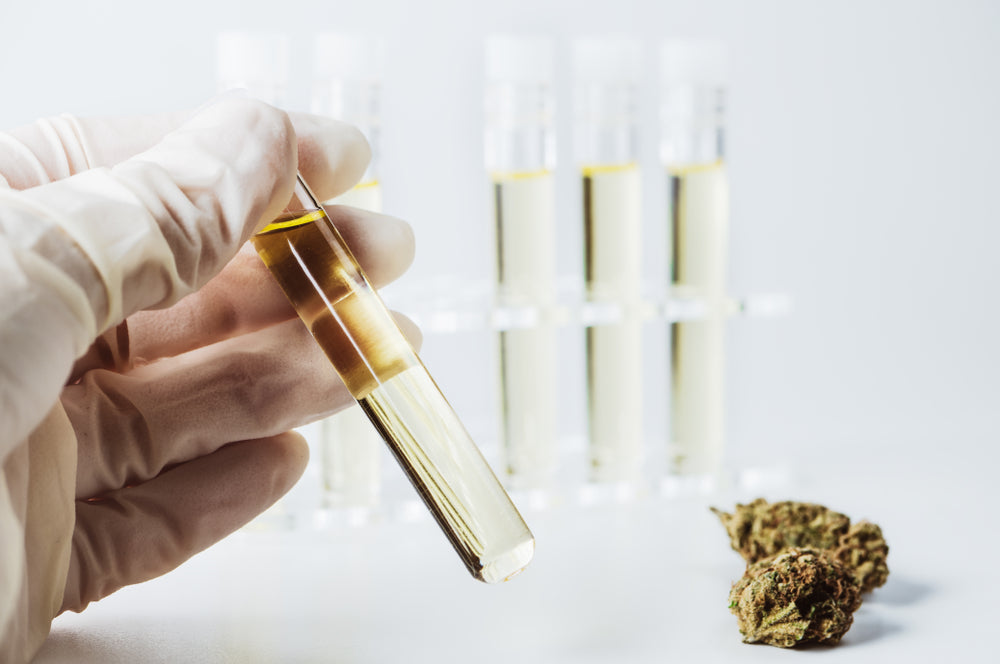



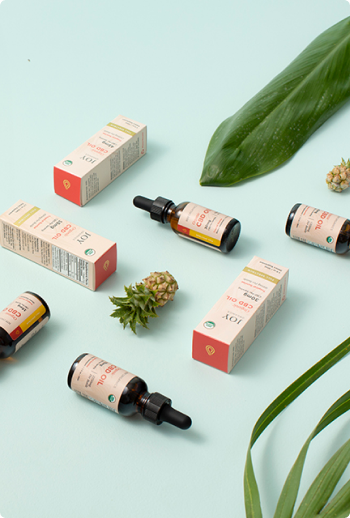
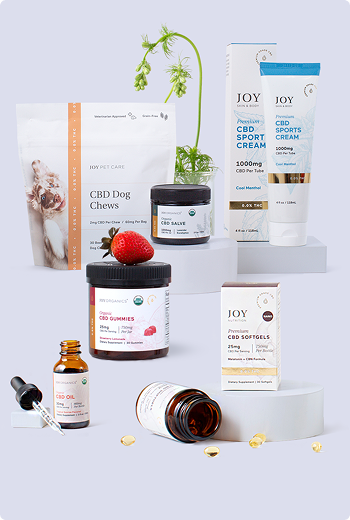
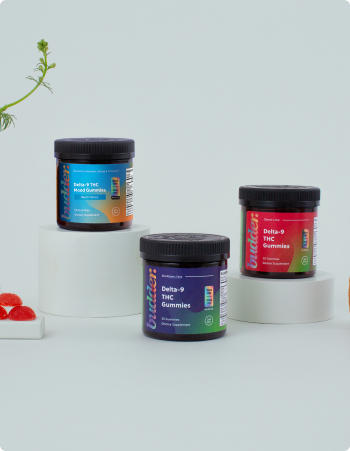















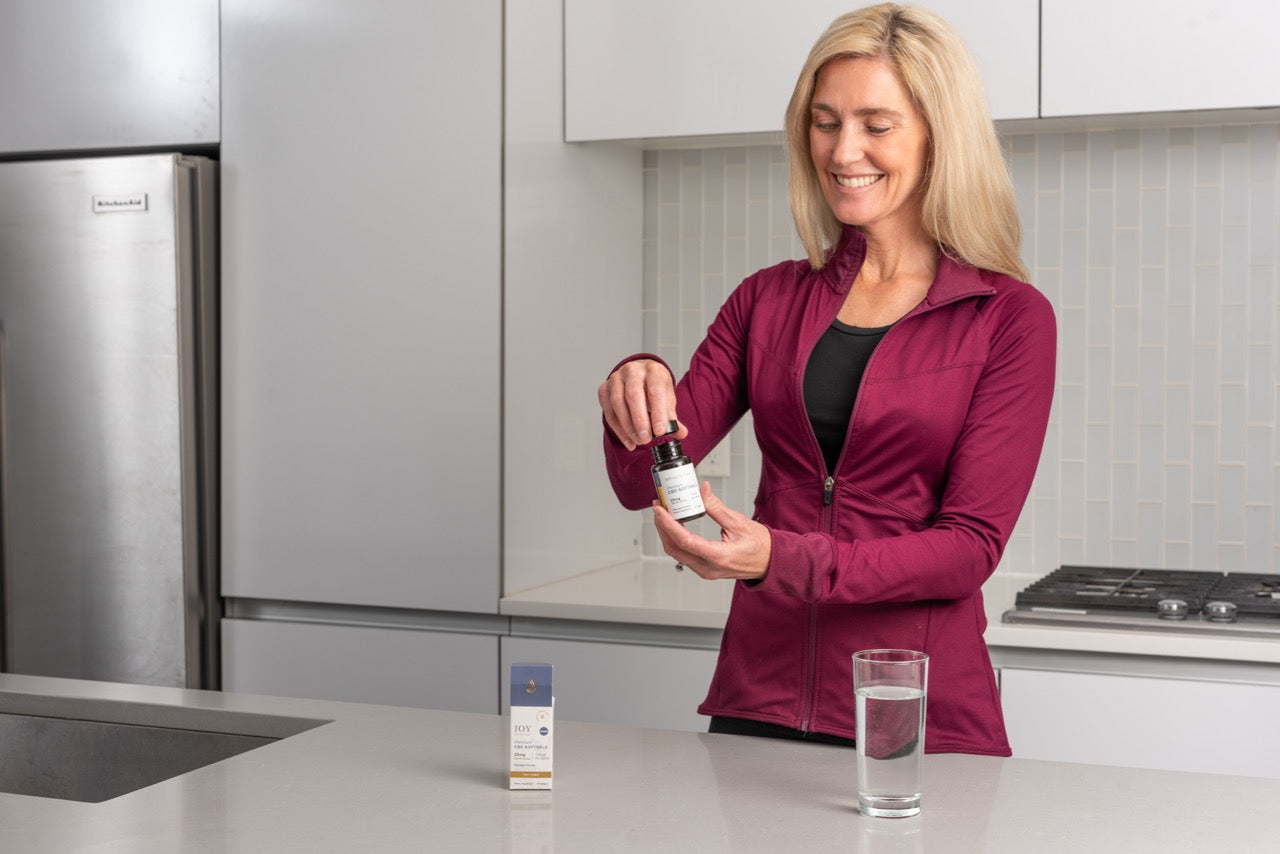




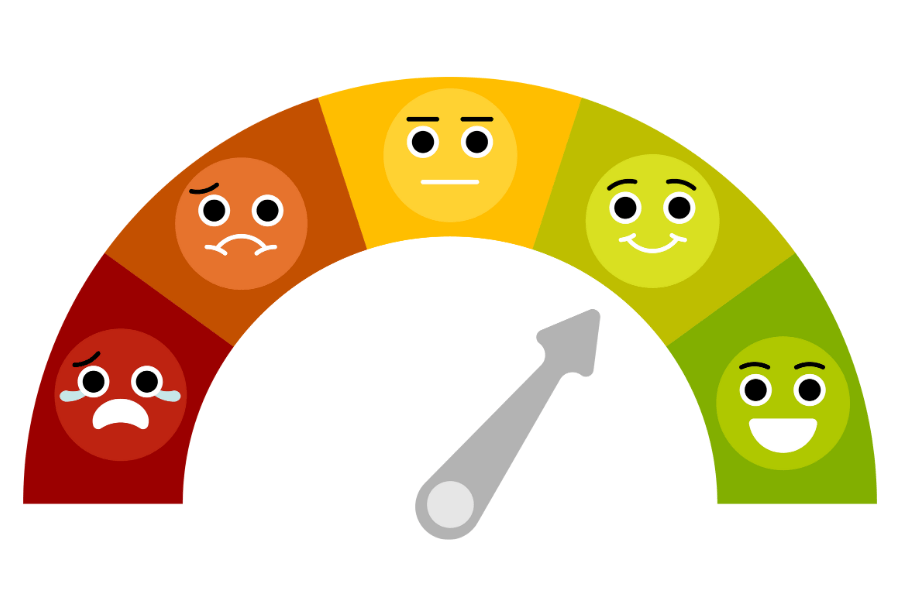
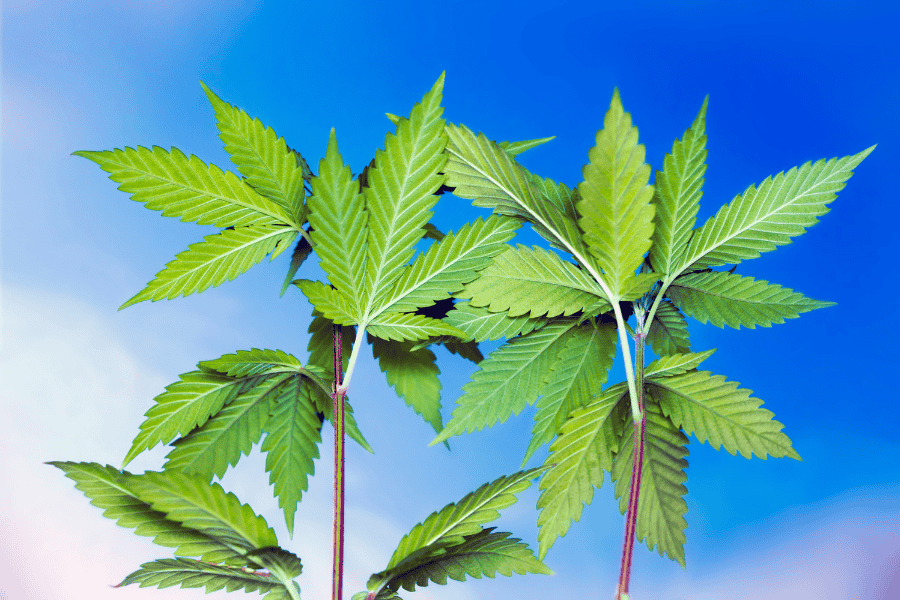


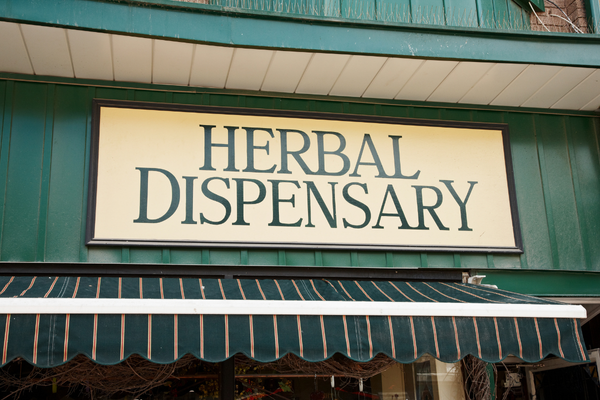



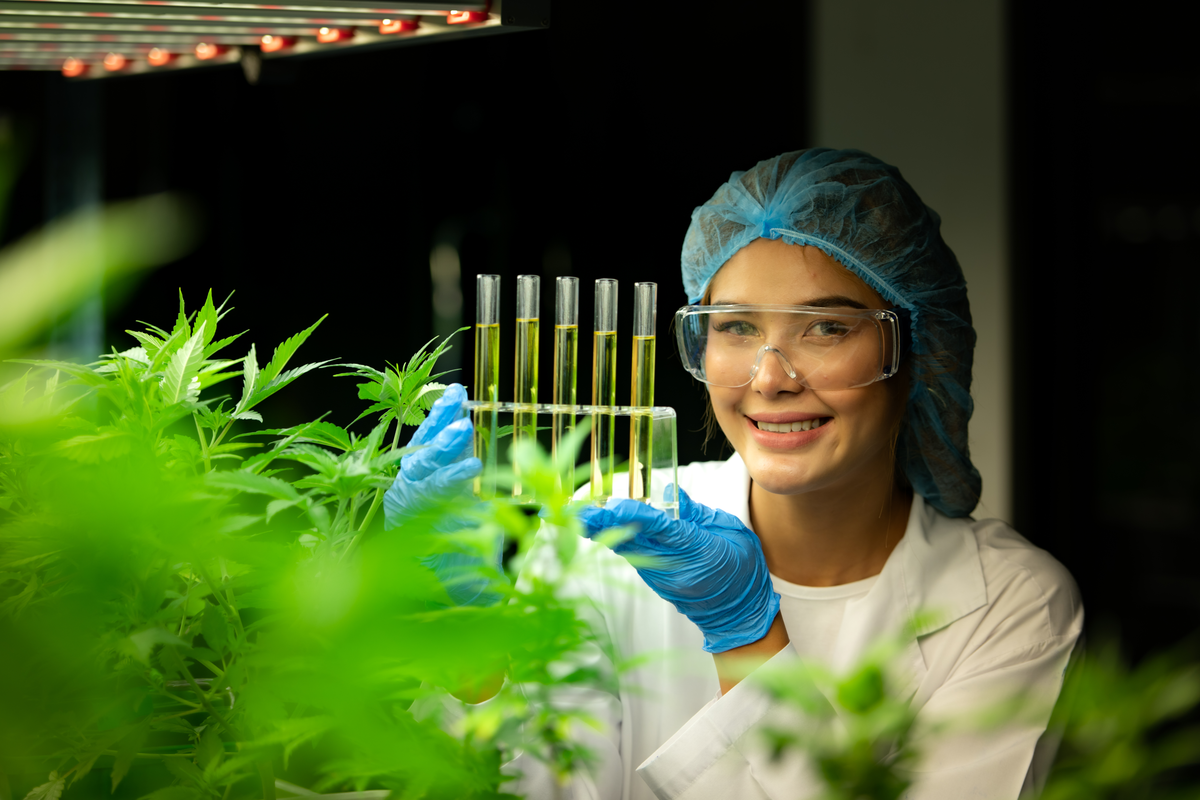

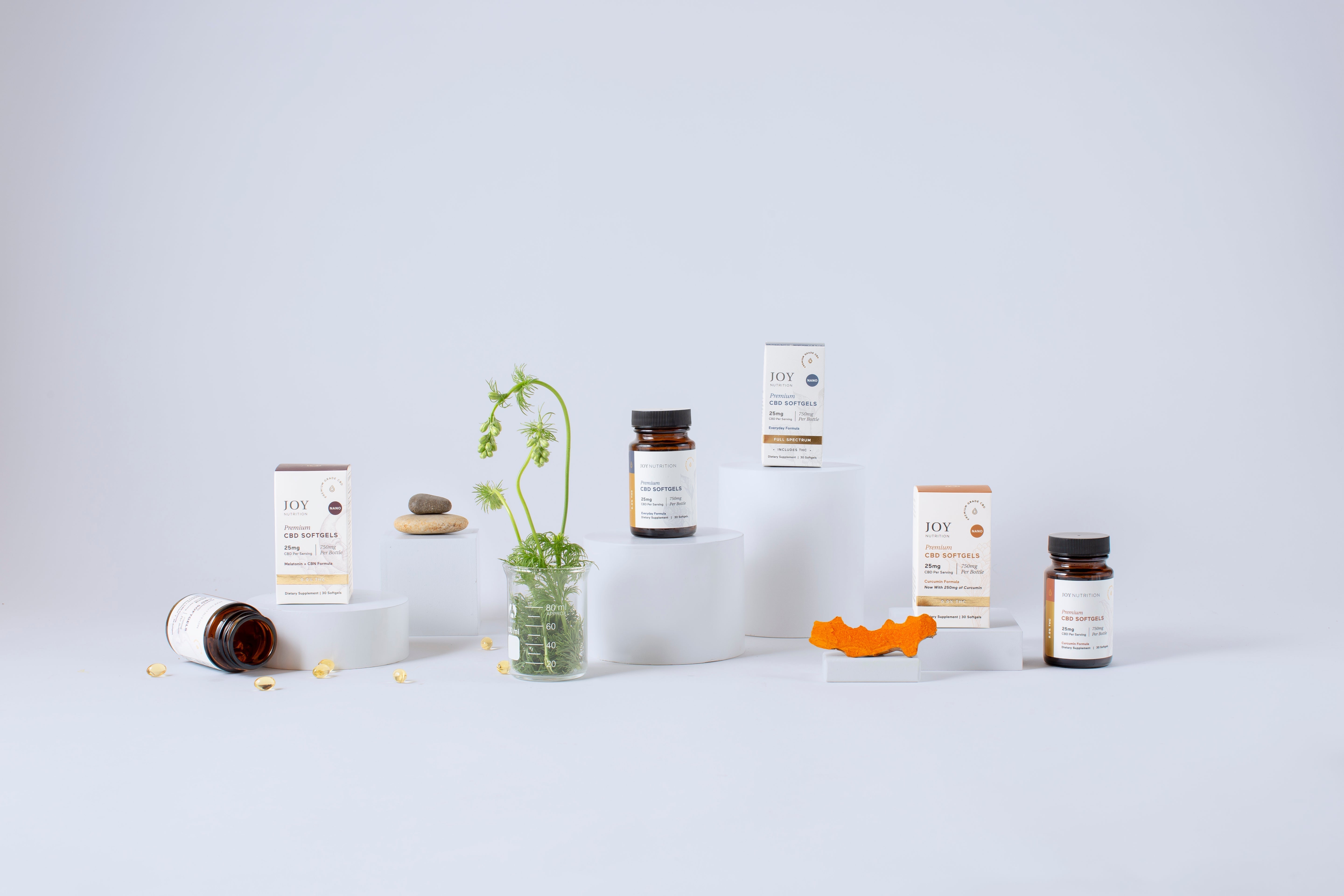



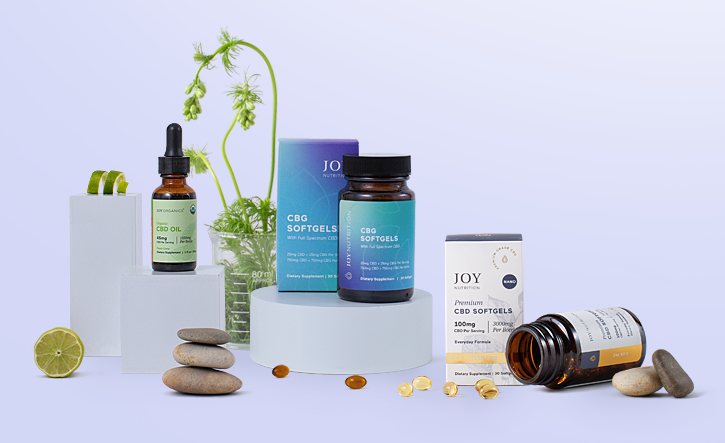


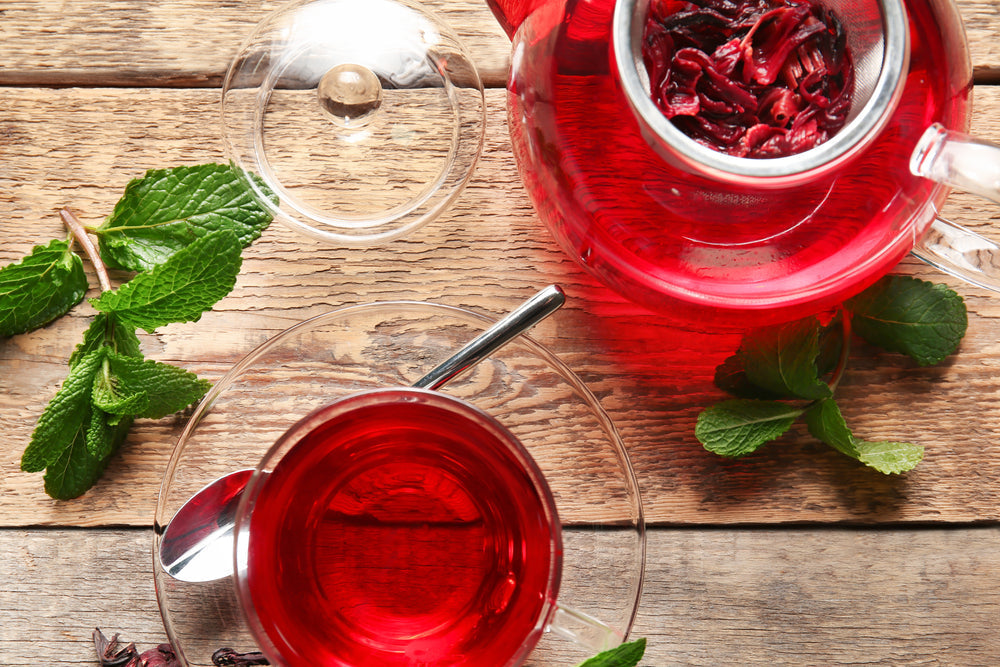


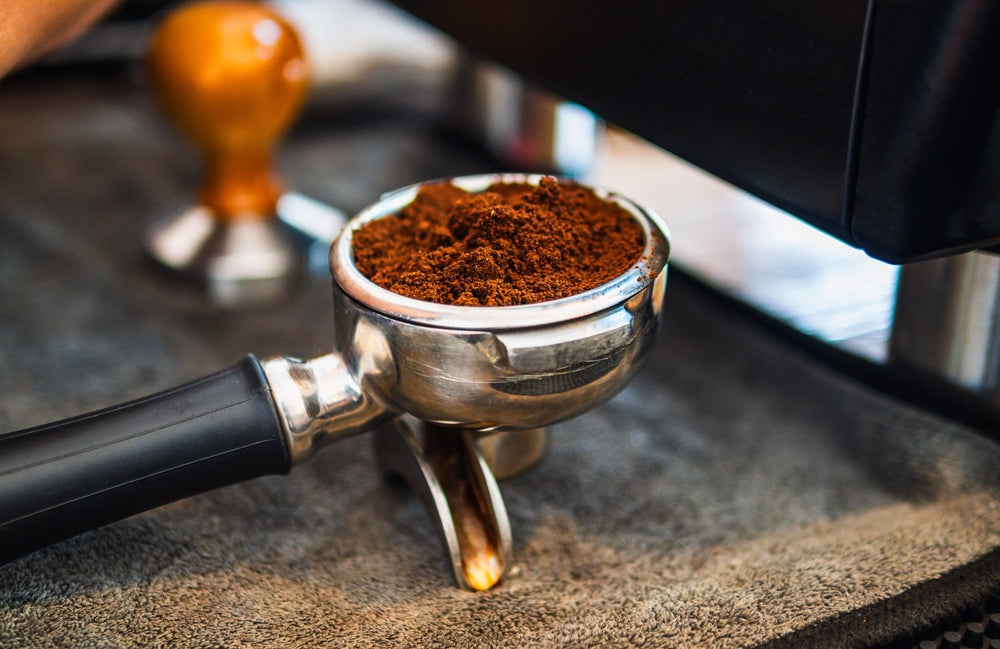

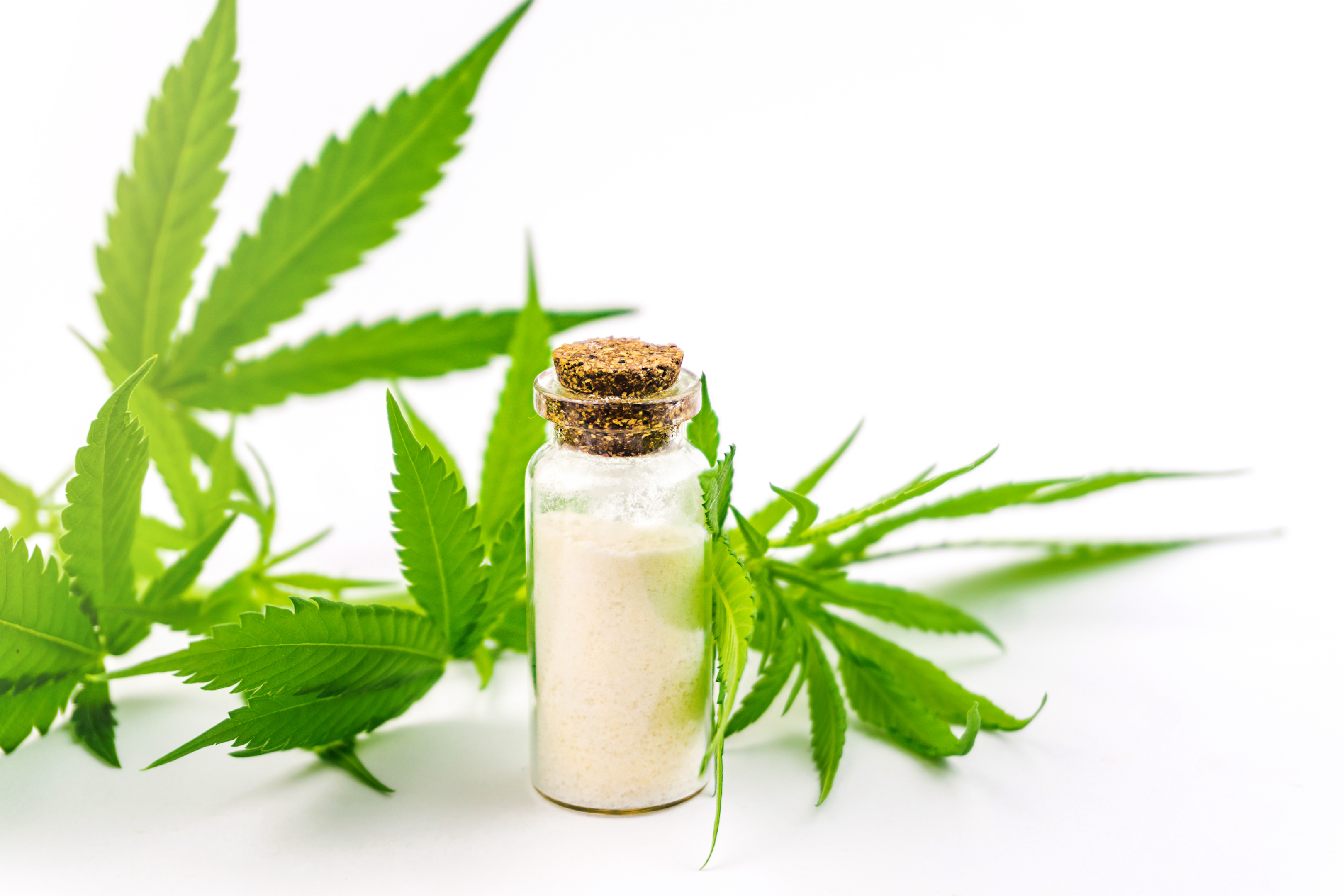
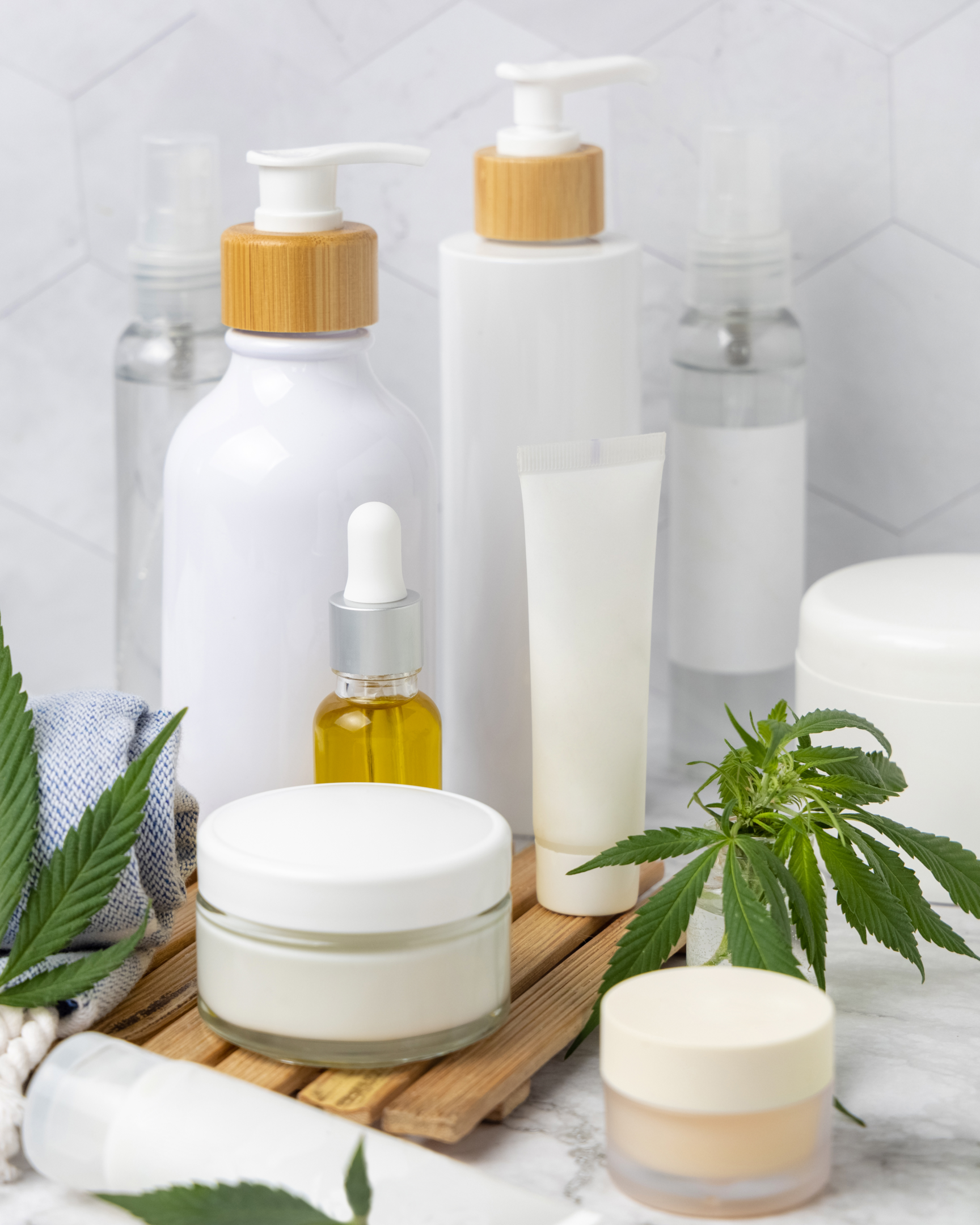
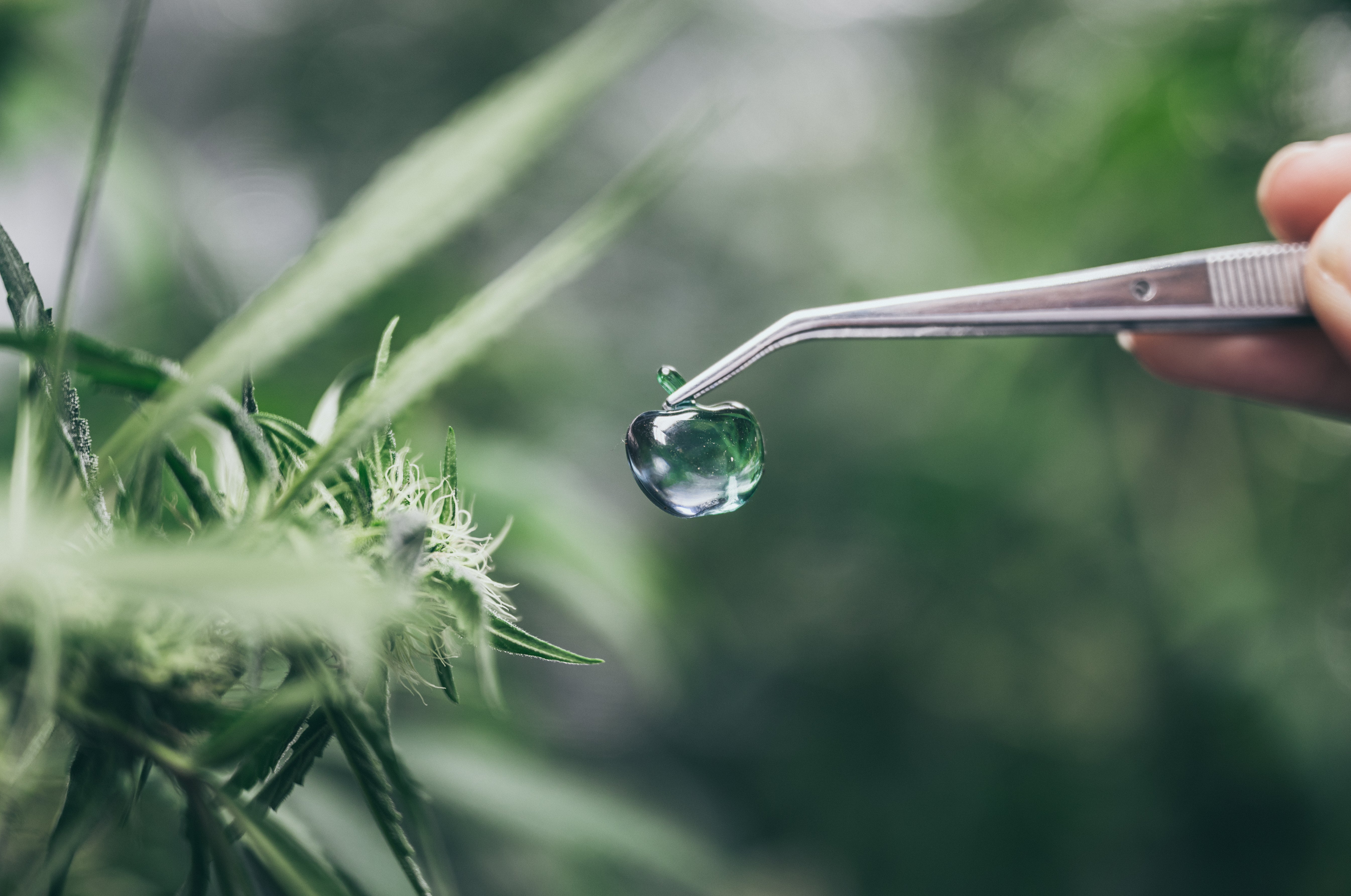
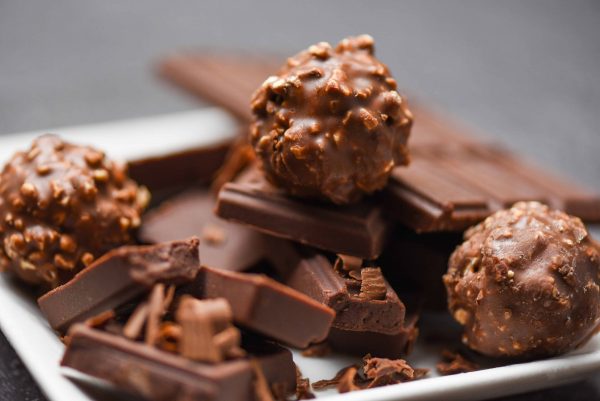
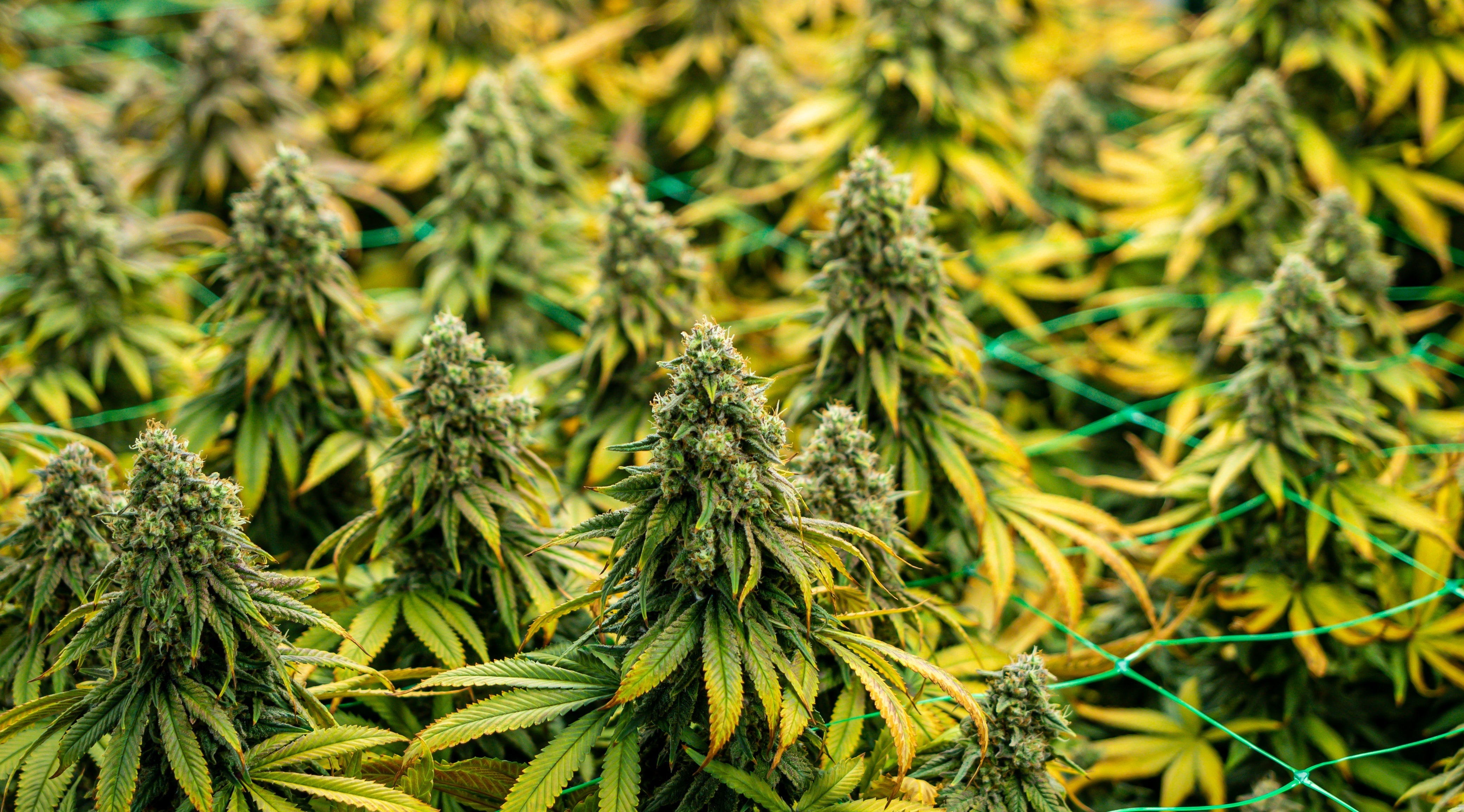
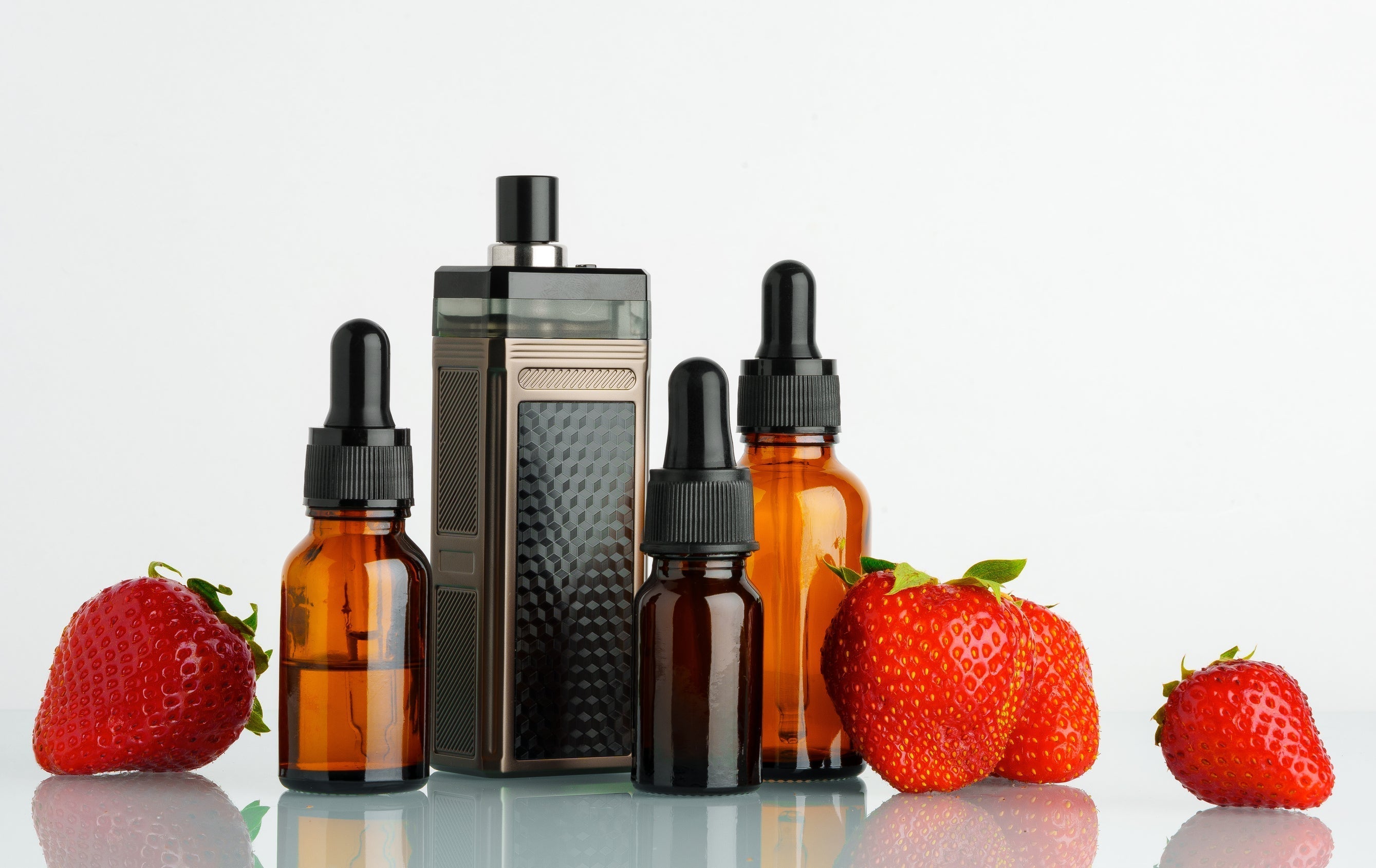

Join in on the Conversation
Your email address will not be published. Once your comment is approved, it will be published.